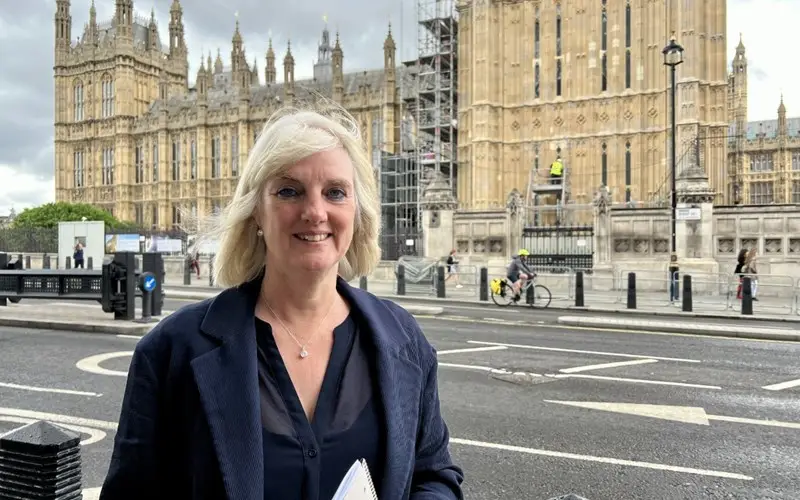Without greater efforts to retain existing staff and recruit new ones, the maternity workforce will remain fragile. That was the stark warning to MPs yesterday by Royal College of Midwives (RCM) Chief Executive Gill Walton.
The warning came as Gill gave evidence to the House of Commons Health and Social Care Select Committee which is holding an inquiry into NHS workforce issues. She was joined by colleagues from other professional organisations, including the British Dental Association (BDA), the Royal Pharmaceutical Society and the Royal College of Nursing (RCN).
“I wish I could say yes, but the answer is no. The midwifery workforce is very fragile and there are fewer midwives in practice now than there were last year,” said Gill, adding that morale is also very low among midwives and maternity support workers.
Gill went on to stress how critical retaining staff is to prevent midwives from leaving the NHS and making the shortages worse.
“How are we going to keep the midwives we have while recruiting more? If I were to pick a key thing that would really make a difference to retention, that would be flexibility. That’s the flexibility to be able to plan your work. We know over 60% of midwives have caring responsibilities, and so being able to plan their work is really important,” she said, highlighting the worrying trend of midwives leaving within the first five years after qualifying. “We really need to think of all the ways we can to keep them [midwives] in practice.”
Pay was also another key issued that Gill raised with the Committee, saying that midwives must be valued for what they do because it ‘is a really tough job.”
There must also be a focus on student midwives said Gill, because they also face challenges, such as caring responsibilities and access to affordable childcare, that force many to leave before they complete their training.
“The supply needs to be looked at as well as the retention, that is key,” she said. She also called for ring-fenced money for NHS trusts to enable jobs to be given to newly qualified midwives.
Gill concerns were echoed by other organisations giving evidence to the Committee. RCN President Dr Denise Chaffer also cited retention of nurses and pay as crucial issues, along with high vacancy rates in nursing.
Gill cautioned the Committee against focusing too much on vacancy rates as a yardstick for looking at midwife shortages, saying that the number of vacancies often did not reflect the actual staffing needs of NHS trusts. However, she cite the concerns of many senior midwives, who have told her they are struggling to staff their services safely with 20-30% vacancy rates.
Continuity of carer in maternity was also on the Committee’s radar. Last year the RCM called for the implementation of continuity across England to be postponed because of staffing shortages. Gill was asked by one of the committee members how far off maternity services are from midwives being able to provide continuity of carer for patients. Gill said the evidence is very clear about how continuity can improve outcomes but said that we are very far off being able to do that. “When you try to implement it without enough staff it is not helpful. It creates inequality within services and that creates stress. The RCM believes that gold standard is what every woman needs but until there are enough midwives in the system it is not possible to implement in the way envisaged, and that is a really sad state of affairs.”
Gill also reflected on the Birthrights report earlier this week on racial injustice in maternity care and poorer outcomes for Black and Asian women. Gill called for additional funding, saying we must really focus on that group of women and stressed that the maternity workforce also is an important equation in this. “Work is being done in this area and I have seen some really good examples, but there is much more that needs to be done, and we are all committed to that.”
The whole session can be watched at Committees – UK Parliament



